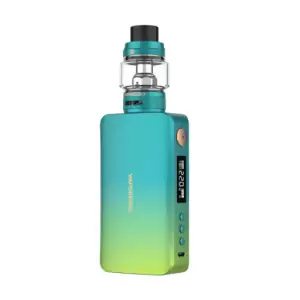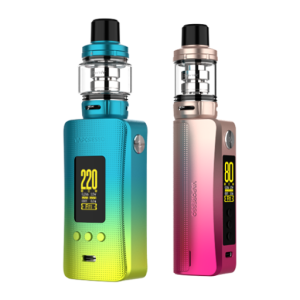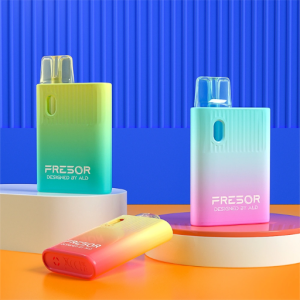In recent years, the global landscape of vape legislation has seen a significant shift, with disposable vapes increasingly coming under the scrutiny of regulators around the world. As nations grapple with the burgeoning popularity of vaping, a patchwork of laws and regulations has emerged, reflecting a wide spectrum of approaches to managing these products. From outright bans to regulated acceptance, the stance on disposable vapes varies dramatically from one country to another, influenced by public health concerns, smoking cessation strategies, and the lobbying efforts of both tobacco and vaping industries.
For users and businesses alike, understanding these country-specific laws is not just a matter of legal compliance—it’s essential for responsible usage, international travel, and global commerce. The diversity in regulations underscores the importance of staying informed and adaptable in a rapidly evolving legal environment. Whether for personal use or in the context of the vaping industry, navigating the intricacies of global vape laws demands a thorough and ongoing commitment to research.
This complexity is further compounded by the distinctions between disposable vapes and other vaping products. While some countries focus their regulatory efforts on nicotine content and device type, others may impose blanket restrictions that affect all vaping devices. This landscape presents a unique set of challenges and opportunities for stakeholders across the vaping spectrum.
As we delve into the specifics of vape legislation across various regions, from the United States‘ patchwork of state laws to the United Kingdom‘s model of regulation and acceptance, a clear picture emerges: the only constant in global vape legislation is change. Keeping abreast of these changes is crucial for anyone involved with disposable vapes, whether as a user, manufacturer, or retailer.
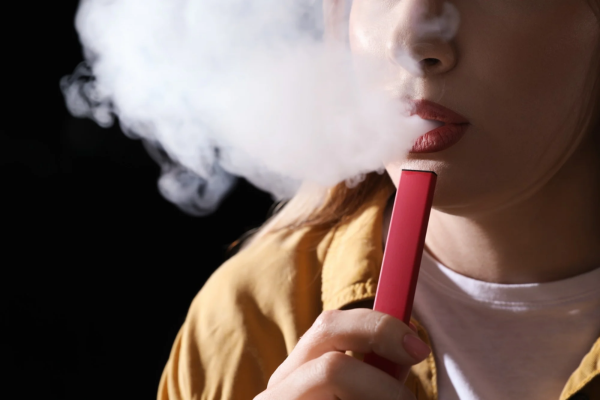
The Legal Framework for Vapes: A Global Overview
The global regulatory landscape for disposable vapes is characterized by a diverse array of legal frameworks, reflecting differing national attitudes towards vaping and its role in public health. Understanding these general trends is crucial for navigating the complexities of vape legislation worldwide.
General Trends in Global Vape Legislation
- Health Concerns vs. Harm Reduction: A significant driver of vape legislation is the debate between viewing vaping as a public health concern versus a harm reduction tool. Countries that prioritize public health concerns tend to implement stricter regulations, including bans and severe restrictions on sales and marketing. Conversely, nations that view vaping primarily as a means to reduce harm from tobacco smoking are more likely to adopt regulatory approaches that allow for controlled access to disposable vapes.
- Youth Protection: Across the board, protecting minors from nicotine addiction is a common theme in vape legislation. This is often achieved through age restrictions, marketing limitations, and bans on flavors perceived to appeal to younger demographics.
Distinctions Between Regulations for Disposable Vapes and Other Vaping Products
- Product Type Specific Regulations: Some countries distinguish between disposable vapes and reusable vaping devices in their legislation. Disposable vapes might be subjected to different rules due to their ease of access and use, perceived appeal to non-smokers or younger users, and environmental considerations.
- Nicotine Content and Sales Restrictions: Laws often vary based on nicotine content, with stricter controls around nicotine-containing products. Disposable vapes containing nicotine are more likely to be regulated or restricted compared to non-nicotine alternatives.
Navigating the Regulatory Environment
For individuals and businesses involved with disposable vapes, staying informed about the global regulatory environment is essential:
- Continuous Monitoring: Legislation related to vaping is rapidly evolving. Regularly monitoring legal developments in key markets can help users and businesses stay compliant and adapt to new regulations.
- Legal Consultation: Particularly for businesses, consulting with legal experts who specialize in tobacco and vaping laws can provide valuable insights and guidance on navigating international regulations.
- Public Health Engagement: Engaging with public health discussions and contributing to harm reduction research can also play a role in shaping future legislation and public attitudes towards disposable vapes.
The global approach to regulating disposable vapes reveals a complex interplay between health, legal, and commercial considerations. By understanding these dynamics and staying abreast of changes, stakeholders can better navigate the legal landscape, ensuring responsible use and compliance with international laws.
United States: A Patchwork of State Laws
In the United States, the regulatory environment for disposable vapes is marked by a diverse patchwork of laws that vary significantly across federal, state, and local levels. This complex legal landscape reflects the country’s decentralized approach to public health policy and tobacco regulation.
Federal Regulations Impacting Disposable Vapes
At the federal level, the Food and Drug Administration (FDA) plays a pivotal role in regulating disposable vapes under the authority granted by the Family Smoking Prevention and Tobacco Control Act. Key federal regulations include:
- Age Restrictions: The nationwide minimum legal sale age for disposable vapes and all tobacco products has been raised to 21.
- Marketing and Sales: The FDA has imposed strict guidelines on the marketing and online sales of disposable vapes to curb access and appeal to minors.
- Flavor Bans: While there has been significant regulatory focus on flavored cartridge-based e-cigarettes, disposable vapes have also come under scrutiny for their flavored offerings, although comprehensive flavor bans have not been uniformly applied at the federal level.
Highlighting Key States with Unique Restrictions or Allowances
State and local governments have the authority to enact their own vaping regulations, often resulting in a mosaic of rules that can be more stringent than federal guidelines:
- California: Known for its proactive public health policies, California has implemented strict bans on the sale of flavored disposable vapes in an effort to reduce youth vaping.
- Michigan: Was among the first states to announce a ban on flavored vaping products, including disposable vapes, although enforcement and legal challenges have influenced the ban’s implementation.
- New York: Has enforced a comprehensive flavor ban on all vaping products, directly impacting the availability of flavored disposable vapes.
Navigating State and Federal Regulations
For users and businesses involved with disposable vapes, navigating the regulatory framework in the U.S. requires diligence and adaptability:
- Stay Informed: Regularly update your knowledge of both federal and state vaping laws, as regulations can change rapidly.
- Compliance is Key: Ensure that all disposable vapes comply with the specific regulations of the states in which they are sold or used, particularly concerning age restrictions and flavor bans.
- Engage with Advocacy: Consider engaging with vaping advocacy groups that work to influence public policy and regulations in a direction that supports harm reduction and consumer choice.
The regulatory approach to disposable vapes in the United States underscores the importance of staying informed and compliant within a rapidly evolving legal landscape. By understanding the nuances of federal and state laws, stakeholders can better navigate the complexities of vaping regulations, ensuring responsible use and access to these products.

United Kingdom: A Model of Regulation and Acceptance
The United Kingdom has emerged as a global leader in the balanced regulation of disposable vapes, adopting a stance that encourages their use as a tool for smoking cessation while ensuring robust safeguards to protect public health, especially among minors.
How the UK’s Stance on Disposable Vapes Differs from Others
Unlike countries that have implemented stringent restrictions or outright bans, the UK has adopted a more permissive approach towards vaping, backed by Public Health England’s endorsement of e-cigarettes as being 95% less harmful than smoking traditional cigarettes. This public health perspective views disposable vapes as a viable alternative for adult smokers looking to quit, significantly influencing regulatory policies.
Specific Regulations Governing Use, Sales, and Advertising
- Age Restrictions: It is illegal to sell disposable vapes to anyone under the age of 18. Retailers are required to verify the age of purchasers, similar to alcohol and tobacco products.
- Advertising Guidelines: The UK has established clear guidelines for the advertising of vaping products, allowing them to be marketed but with restrictions to prevent appeal to minors. These include bans on advertising in certain mediums and requirements for health warnings.
- Product Standards: The UK adheres to the EU’s Tobacco Products Directive (TPD), which sets safety and quality standards for vaping products, including limits on nicotine strength (20mg/ml maximum) and tank sizes (no larger than 2ml for tanks).
The Impact of Regulation on Public Health and Smoking Cessation
The regulatory framework in the UK is designed to strike a balance between making disposable vapes accessible as a smoking cessation tool while mitigating potential risks associated with their use. This approach has led to:
- Increased Adoption Among Adult Smokers: Many adult smokers in the UK have successfully used disposable vapes to reduce or quit smoking, supported by accessible products that meet stringent safety standards.
- Ongoing Research and Monitoring: The UK government and public health bodies continue to monitor the impact of vaping on public health, adapting regulations as needed based on emerging evidence.
Navigating Vaping Laws in the UK
For those using or selling disposable vapes in the UK, compliance with the regulatory framework is crucial. This includes staying informed about product standards, adhering to age restrictions, and following advertising guidelines. The UK’s approach serves as a model for other countries, demonstrating that it is possible to support public health goals while allowing adults to make informed choices about vaping.
The UK’s stance on disposable vapes showcases a pragmatic approach to regulation, balancing the potential benefits of vaping for smoking cessation with the need to protect public health, especially among young people. This balanced perspective underscores the importance of evidence-based policies in the evolving discourse on vaping and public health.

European Union: Varying Restrictions Within a Unified Framework
The European Union (EU) presents a unique case of vaping regulation, encompassing a broad spectrum of approaches within its member states while adhering to a unified regulatory framework provided by the Tobacco Products Directive (TPD). This directive sets foundational guidelines for the sale, manufacturing, and presentation of disposable vapes and other vaping products across the EU, aiming to harmonize regulations while allowing individual countries to implement stricter measures if desired.
Overview of the Tobacco Products Directive (TPD) and Its Implications for Disposable Vapes
- Safety and Quality Standards: The TPD enforces strict safety and quality standards for disposable vapes, including requirements for child-proof packaging, health warnings on labels, and a maximum nicotine concentration of 20mg/ml.
- Cross-border Sales: The directive regulates cross-border sales of vaping products, requiring vendors to register for a specific scheme if they wish to sell to customers in other EU countries.
- Advertising Restrictions: While the TPD sets certain limits on advertising and promotion of vaping products to protect minors, it leaves room for member states to enact their own, stricter advertising laws.
Country-specific Exceptions and Stricter Regulations Within the EU
While the TPD provides a baseline for regulation, individual EU member states have the authority to introduce stricter rules regarding disposable vapes:
- Flavor Bans: Countries like Finland and Hungary have implemented bans on certain flavors of e-liquids to reduce the appeal of vaping products to young people.
- Public Usage Restrictions: Nations such as Sweden and Belgium have extended their smoking bans to include vaping, prohibiting the use of disposable vapes in public indoor areas and, in some cases, outdoor public spaces.
- Taxation: Several EU countries have introduced taxes on vaping products, including disposable vapes, affecting their price and accessibility.
Navigating Vaping Laws in the European Union
For individuals and businesses dealing with disposable vapes within the EU, understanding and navigating the regulatory landscape requires attention to both EU-wide directives and country-specific laws:
- Stay Informed: Regularly update knowledge on both TPD regulations and national laws of specific EU countries, especially in a rapidly evolving regulatory environment.
- Compliance is Key: Ensure that products comply with the highest standards of safety and quality as outlined by the TPD, as well as any additional restrictions imposed by individual member states.
- Engage with Regulatory Bodies: For businesses, engaging with national regulatory bodies and staying abreast of potential regulatory changes can aid in proactive compliance and adaptation to new laws.
The EU’s approach to regulating disposable vapes exemplifies an effort to balance public health concerns with the rights of adult smokers seeking harm reduction alternatives. By navigating this complex regulatory framework with diligence and respect for both the unified and individualized aspects of EU vaping laws, stakeholders can effectively participate in the European vaping market.
Australia: Strict Controls and Prescription Requirements
Australia’s approach to the regulation of disposable vapes, particularly those containing nicotine, is marked by stringent controls and unique prescription requirements. This regulatory framework aims to mitigate the public health risks associated with vaping while allowing smokers to access these products for cessation purposes under medical supervision.
The Legal Status of Nicotine Vaping Products, Including Disposable Vapes, Requiring a Prescription
In Australia, nicotine-containing disposable vapes fall under the category of therapeutic goods. As such, they can only be legally obtained with a prescription from a registered Australian medical practitioner. This measure is intended to restrict access to nicotine vaping products, ensuring they are used primarily as an aid for smoking cessation rather than a recreational activity or an entry point to nicotine addiction for non-smokers, particularly youths.
State-level Variations and Enforcement Practices
While the prescription requirement for nicotine vaping products is a federal regulation, individual states and territories in Australia have their own laws regarding the sale, possession, and use of disposable vapes:
- Sale and Supply: Most states have regulations in place that prohibit the sale of any vaping product, regardless of nicotine content, without appropriate approval. Penalties for selling or supplying disposable vapes without a prescription can include fines and other legal consequences.
- Use in Public Places: Similar to tobacco products, many Australian states also restrict the use of disposable vapes in public places, especially where smoking is prohibited, including near educational institutions, on public transport, and in certain government buildings.
Navigating Vaping Laws in Australia
For those residing in or visiting Australia, navigating the legal landscape around disposable vapes requires careful attention to both federal and state regulations:
- Obtain a Prescription: If you’re a smoker looking to use disposable vapes as a cessation tool, consult with a healthcare provider about obtaining a prescription. This is a necessary step for legal access to nicotine vaping products.
- Be Aware of Local Laws: Familiarize yourself with the specific vaping regulations of the state or territory you are in or plan to visit. This includes understanding where vaping is allowed and any restrictions on the sale or display of vaping products.
- Practice Responsible Vaping: Even with a prescription, it’s important to use disposable vapes responsibly. This means adhering to public usage restrictions and being mindful of others, especially in shared spaces.
Australia’s strict regulatory approach to disposable vapes, characterized by prescription requirements and state-level enforcement, reflects the country’s cautious stance on vaping. By understanding and complying with these regulations, individuals can navigate the complexities of vaping laws in Australia, ensuring they remain within legal boundaries while accessing these products for smoking cessation.
Canada: Emphasizing Youth Protection and Harm Reduction
Canada’s regulatory approach to disposable vapes embodies a balanced perspective, emphasizing both youth protection and harm reduction. The federal government, along with provincial authorities, has established a comprehensive set of regulations aimed at minimizing the potential risks associated with vaping while recognizing its role in helping adult smokers reduce or quit smoking.
Federal Regulations Affecting Disposable Vapes
At the federal level, Canada’s approach is guided by the Tobacco and Vaping Products Act (TVPA), which was amended to include vaping products. Key aspects of the legislation include:
- Age Restrictions: The sale of disposable vapes to individuals under the age of 18 is prohibited across Canada, with some provinces raising the minimum legal age to 19 or 20.
- Marketing and Promotion: Strict regulations are in place to limit the marketing and promotion of disposable vapes, especially those tactics that could appeal to youth. This includes restrictions on advertising, sponsorships, and the display of vaping products in retail settings.
- Health Warnings: Packaging for disposable vapes must include health warning messages, and certain appealing flavors are restricted to adult-only access settings to further deter youth interest.
Provincial Differences in the Legal Age and Usage in Public Places
In addition to federal regulations, each Canadian province and territory has the authority to enact further restrictions on disposable vapes:
- Public Usage: Many provinces have integrated vaping into their smoke-free laws, regulating where disposable vapes can be used. This often includes bans on vaping in indoor public places, workplaces, and in some cases, outdoor areas where children are present.
- Retail Restrictions: Some provinces have implemented additional regulations on the retail sale of vaping products, including licensing requirements for vape shops and restrictions on the visibility of vaping products at the point of sale.
Navigating Vaping Laws in Canada
For individuals and businesses dealing with disposable vapes in Canada, understanding and adhering to the layered regulatory landscape is essential:
- Stay Informed: Keep up to date with both federal and provincial regulations, as laws can vary significantly across the country.
- Compliance is Key: Ensure that all disposable vapes and related activities, such as marketing and sales, comply with the stringent regulations set forth by the TVPA, as well as additional provincial laws.
- Responsible Use and Sale: Retailers and users should practice responsible sale and use of disposable vapes, prioritizing the protection of youth and non-smokers, and respecting public usage restrictions.
Canada’s regulatory framework for disposable vapes reflects a commitment to public health, emphasizing the need to protect young Canadians from nicotine addiction while providing adult smokers with harm reduction alternatives. By navigating these regulations with care and responsibility, Canadians can contribute to the dual goals of reducing smoking rates and preventing youth vaping.

Asia: Diverse Approaches from Ban to Tolerance
Asia presents a mosaic of regulatory approaches towards disposable vapes, ranging from outright bans to varying degrees of tolerance. The continent’s diverse cultural, social, and public health landscapes have led to markedly different legislative responses to vaping. This section focuses on the contrasting policies of Japan and Thailand as representative examples of the region’s regulatory spectrum.
Japan: A More Tolerant Stance with Restrictions
Japan’s approach to disposable vapes, particularly those without nicotine, is relatively permissive, allowing their sale and use but with notable restrictions aimed at safeguarding public health:
- Nicotine Vapes: The sale of nicotine-containing disposable vapes is regulated, requiring pharmaceutical approval, which has led to a unique market where nicotine-free vapes are more commonly available.
- Regulatory Framework: While Japan does not outright ban disposable vapes, it imposes regulations on their marketing and sale, especially to protect minors from initiating vaping.
- Cultural Acceptance: Vaping has seen increasing cultural acceptance in Japan as an alternative to traditional smoking, in part due to the popularity of heated tobacco products, which are legally distinct from disposable vapes but occupy a similar niche.
Thailand: Strict Regulations and Complete Bans
In contrast, Thailand represents one of the stricter regulatory environments in Asia, with a comprehensive ban on the sale, import, and possession of disposable vapes:
- Legal Penalties: Violations of the ban can result in severe penalties, including fines and imprisonment, reflecting the government’s strong stance against vaping as a public health measure.
- Enforcement: Thai authorities actively enforce the ban, targeting both vendors and individuals. Travelers are particularly cautioned against bringing disposable vapes into the country, even for personal use.
The Impact of Cultural and Public Health Priorities on Legislation
The differing approaches of Japan and Thailand to disposable vapes underscore the significant impact of cultural norms and public health priorities on vaping legislation:
- Public Health Concerns: In countries with strict bans, such as Thailand, public health concerns about the unknown long-term effects of vaping and the potential for youth initiation often drive legislation.
- Harm Reduction Perspectives: Conversely, countries with more permissive regulations, like Japan, may view disposable vapes as a less harmful alternative to smoking, reflecting a harm reduction perspective within their regulatory frameworks.
Navigating Vaping Laws in Asia
For travelers and residents navigating the diverse legal landscape of vaping in Asia, several considerations are key:
- Research Local Laws: Before traveling or importing disposable vapes into any Asian country, thoroughly research the local laws to avoid unintentional legal violations.
- Cultural Sensitivity: Be mindful of local attitudes towards vaping, which can vary widely even within regions where it is legally permitted.
- Stay Informed: Regulatory stances in Asia are subject to change as new research emerges and public health strategies evolve. Keeping abreast of the latest developments is essential for compliance and respectful engagement with local norms.
Asia’s varied approaches to disposable vapes reflect a complex interplay of cultural, legal, and public health factors. Understanding and respecting these nuances is crucial for individuals and businesses operating within or traveling to the region.
Middle East: Strict Regulations and Cultural Influences
The Middle East exhibits some of the strictest regulations on disposable vapes, with many countries in the region imposing outright bans or severe restrictions on the sale, use, and importation of vaping products. These stringent measures are often influenced by cultural norms, public health priorities, and religious considerations, making the region a challenging landscape for vaping enthusiasts.
Examination of Countries with Outright Bans on the Sale and Use of Disposable Vapes
Several Middle Eastern countries have enacted comprehensive bans on disposable vapes:
- United Arab Emirates (UAE): While the UAE had previously enforced a total ban on the sale and importation of vaping products, recent changes have seen a relaxation of these rules, allowing the regulated sale of disposable vapes under strict guidelines.
- Saudi Arabia: Saudi Arabia regulates the import, sale, and use of disposable vapes, including stringent controls on advertising and flavor bans aimed at reducing appeal to minors.
- Kuwait: Kuwait maintains strict regulations on vaping, with specific bans on import and sales, although enforcement and clarity of the laws can vary.
How Cultural Factors Play into Vaping Laws
The regulatory approaches to disposable vapes in the Middle East are deeply intertwined with cultural and religious values that prioritize public health and moral standards:
- Public Health Concerns: Similar to global trends, Middle Eastern countries emphasize the protection of youth and non-smokers from potential harms associated with vaping, including nicotine addiction.
- Religious Considerations: In some countries, religious beliefs and teachings also play a significant role in shaping attitudes towards substances like nicotine, influencing public policy and societal norms around vaping.
Navigating Vaping Laws in the Middle East
For individuals living in or traveling to the Middle East, understanding and navigating the complex legal and cultural landscape regarding disposable vapes is crucial:
- Research and Compliance: Prior to travel, thoroughly research the vaping laws of your destination country. Compliance with local regulations is essential to avoid legal penalties.
- Cultural Sensitivity: Be mindful of local customs and religious practices that may affect perceptions of vaping. When in doubt, err on the side of caution and discretion.
- Stay Informed: Laws and attitudes towards vaping can evolve. Keeping abreast of the latest legal developments and public health advisories is important for staying compliant and respectful of local norms.
The Middle East’s strict regulatory environment for disposable vapes underscores the importance of cultural, legal, and public health considerations in shaping vaping policies. By staying informed and demonstrating respect for local laws and customs, vapers can navigate these regulations more effectively, ensuring a respectful and law-abiding engagement with vaping in the region.
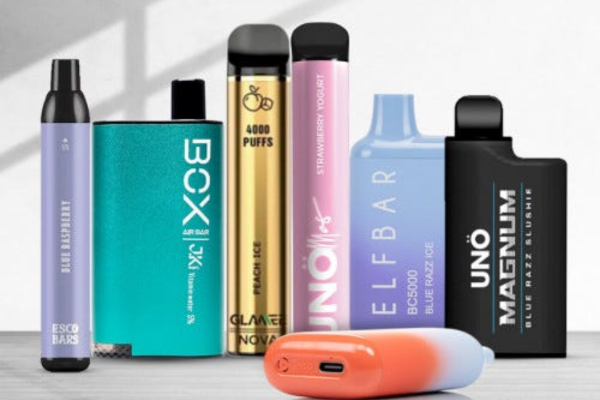
Understanding Legal Implications for Travelers
Navigating the intricate web of global vaping laws, especially for travelers carrying disposable vapes, requires a keen understanding of both the legal landscape and the practical implications of these laws. As vaping regulations can vary dramatically from one country to another, and even within regions of a single country, being well-informed and prepared is crucial for a hassle-free journey.
Advice for Vape Users Traveling Internationally
- Research Local Laws: Before embarking on your trip, thoroughly research the vaping regulations of your destination country. This includes understanding whether disposable vapes are legal, any restrictions on nicotine content, and specific guidelines around carrying vaping devices on airplanes.
- Pack Accordingly: If disposable vapes are permitted in your destination, ensure they are packed in accordance with airline regulations, typically in your carry-on luggage. Be mindful of the quantity you bring to avoid running afoul of import limits.
- Prepare for Customs: Be prepared to declare your disposable vapes at customs if required and understand the potential for inspection. Having documentation, such as receipts or prescriptions (where applicable), can facilitate this process.
The Risks of Assuming Disposable Vapes Are Universally Legal or Treated the Same as Tobacco Products
A common pitfall for travelers is assuming that the legal status and treatment of disposable vapes mirror those of traditional tobacco products. This assumption can lead to unintentional legal violations, such as:
- Fines and Penalties: In countries where disposable vapes are banned or heavily regulated, travelers caught with these devices may face fines, confiscation, or even more severe penalties.
- Confiscation at Customs: Even if disposable vapes are legal in the destination country, failing to adhere to specific import regulations can result in confiscation at customs.
Tips for a Smooth Travel Experience with Disposable Vapes
- Be Informed and Respectful: Beyond understanding the laws, being respectful of local customs and preferences regarding vaping is essential. When in doubt, refrain from vaping or seek guidance on appropriate behavior.
- Consider Local Availability: In some cases, it may be more practical to purchase disposable vapes at your destination rather than bringing them from home, provided they are legal and readily available.
- Have a Backup Plan: For destinations where vaping is heavily restricted or banned, consider alternative nicotine replacement therapies to support your needs during your stay.
Navigating the global landscape of vape laws as a traveler underscores the need for diligence, preparation, and respect for local regulations and customs. By staying informed and compliant, vape users can ensure a stress-free and enjoyable travel experience while minimizing the risk of legal complications related to their disposable vapes.
Conclusion: The Importance of Compliance and Awareness
Navigating the global landscape of vape laws, particularly for disposable vapes, highlights the critical importance of compliance and awareness for users and businesses alike. The diverse and ever-changing nature of these regulations requires a proactive approach to understanding and adhering to the laws in various jurisdictions.
Summarizing the Need for Ongoing Awareness of Vape Laws
The complexity and variability of vaping regulations around the world underscore the need for continuous vigilance. What’s permissible in one country might be heavily regulated or outright banned in another, affecting not only travelers but also international businesses operating in the vaping industry. This dynamic legal environment necessitates staying informed through reliable sources and remaining adaptable to changes.
Encouragement for Vape Users and Businesses to Stay Informed
For vape users, especially those who travel, the responsibility lies in researching and respecting the vape laws of their destinations. This diligence ensures not only legal compliance but also personal safety and respect for local customs and public health concerns.
Businesses involved in the production, distribution, and sale of disposable vapes must navigate these regulations with an understanding of both the global landscape and the specific nuances of the markets they operate in. This includes being aware of import/export restrictions, marketing and sales regulations, and the legal age for vape sales, which can vary significantly from one region to another.
Final Thoughts on Understanding and Adhering to Local Vaping Regulations
The significance of understanding and adhering to vaping regulations cannot be overstated. As the debate around the health implications, societal impact, and regulation of vaping continues, staying informed and compliant remains the best strategy for individuals and businesses involved with disposable vapes. By doing so, they contribute positively to the vaping community, promote public health, and navigate the complexities of global vape laws effectively.
In conclusion, the world of vaping laws is marked by its complexity and constant evolution. For vape users and the vaping industry, the commitment to compliance and awareness is not just a legal obligation but a cornerstone of responsible vaping culture. As regulations continue to evolve in response to new research and societal attitudes, this commitment will remain crucial for navigating the future of vaping on a global scale.


